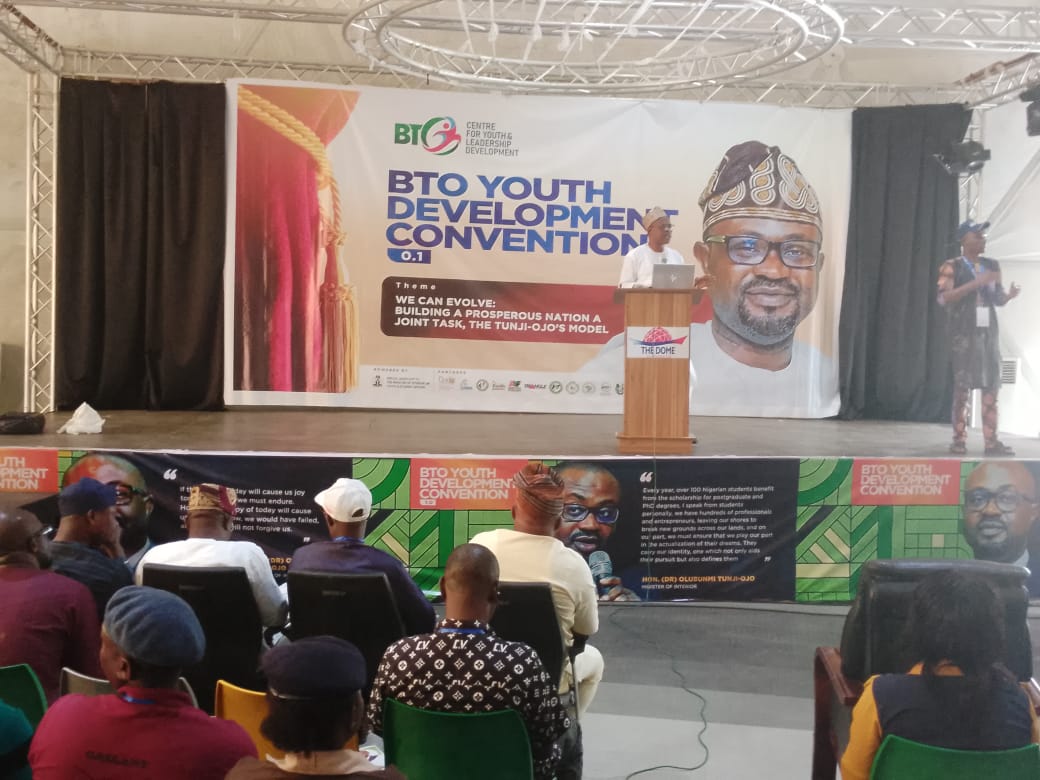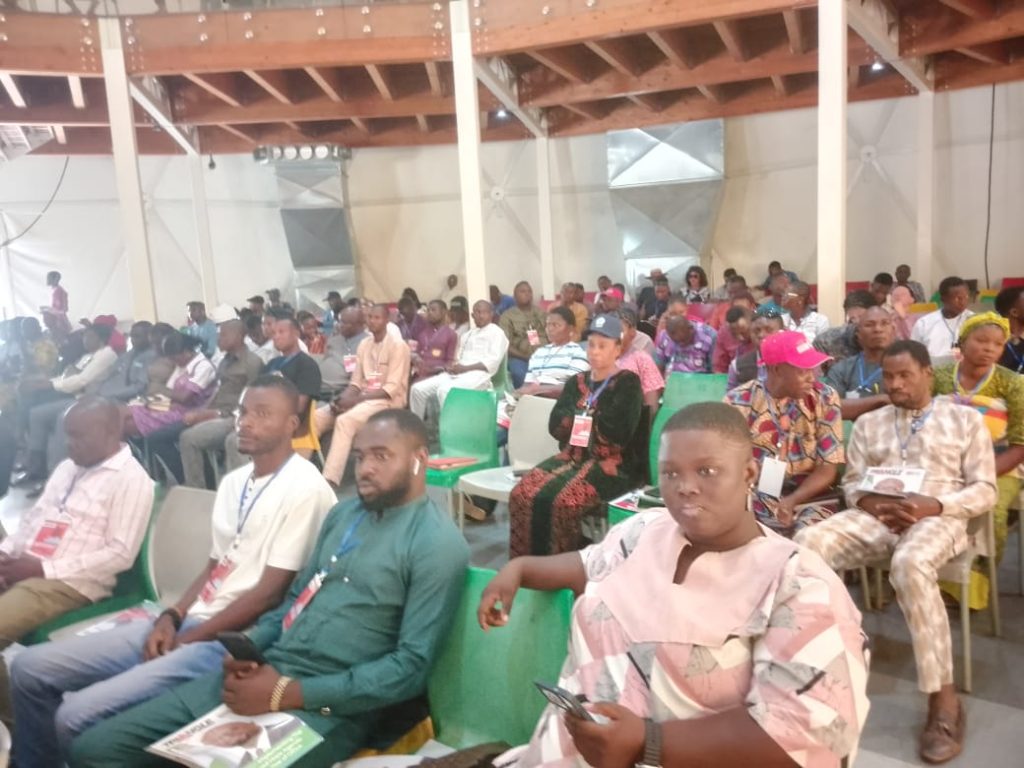By: Oluwatosin Adesola

Stakeholders have met in Akure, the Ondo State capital to brainstorm on youths empowerment and tackling unemployment, at a colloquium organized by BTO Youth Development Convention.
This is just as the Minister of Interior, Olubunmi Tunji-Ojo popularly known as BTO, challenged youths to rethink their approach and prioritize learning a skill in order to position themselves adequately for the 21st century job.
The Minister gave the charge on Friday 23rd August, 2024 at a colloquium organized by BTO Youth Development Convention theme: ‘We Can Evolve: Building a Prosperous Nation, a Joint Task, the Tunji-Ojo’s Model’, held at the International Culture and Event Centre (Dome), in Akure the Ondo State capital.

Tunji-Ojo, represented by his Special Adviser on Strategy and Innovation, Prof Mukhtar Abdulkadir said earning a degree certificate is not enough but equipping themselves with in-demand skills, especially in ICT will give them an edge in the job market.
His words: “Because of the advent of AI, artificial intelligence, you look at most of the graduates today, they are still looking at traditional courses like Electrical engineering, mechanical engineering, maybe medicine and surgery but if you look at what the World Economic Forum said in 2023, that by 2030, 83 million jobs will be lost and 95 million jobs will be created.
“What are those 95 million jobs? We’re looking at jobs like artificial intelligence and machine learning experts Robotic engineers, cyber security experts, sustainability experts.
“Today, lawyers are going to be replaced by social development experts. Some call them social impact experts. What do we mean here? Today, if you go to the internet using this AI tool, just type something, you’ll see the solution. For doctors, if you have a skin disease, go to any AI tool, it will tell you the solution. In the next few years, those jobs will be eliminated
“You may say, I’ve already graduated, I have a degree in electrical or chemical engineering, I have a degree in law, what do I do? You can actually get a certification. There are certificate programs you can run.
“Don’t limit yourself, don’t say, I went to university, why should I go for vocational training? No! Because today, as we speak, the world is moving away from certificates, going for skills. That’s why I summarized skills, not certificates. How do you get those certificates? You get them through vocational training”, he stressed.
Besides, Tunji-Ojo noted that unleashing the potential of youth is a critical factor in driving national prosperity and global development, because young people, who constitute a significant proportion of the world’s population, hold the keys to innovation, economic growth, and social transformation.
“However, realizing this potential requires more than individual efforts—it necessitates a collective approach that involves collaboration among various stakeholders, including governments, educational institutions, the private sector, civil society, and the youth themselves.
“A collective approach is essential because it is a means of encouraging youths to do great things for themselves and also to make great impact in their society Comprehensive Support Systems.
“By working together, different stakeholders can create an environment where youth are supported at every stage of their development, from education to employment.
“Governments, schools, and the private sector can collaborate to provide quality education and vocational training that is aligned with market demands. This ensures that young people are equipped with the skills they need to succeed in the workforce.”
Speaking on his one year in office, he said the ministry of interior under his watch has demonstrated an unwavering commitment to excellence and innovation, marked by significant reforms and unprecedented accomplishments.
The Minister highlighted some of the achievements which include: Swift clearance of passport backlogs and issuance of new passports; elimination of 2.5 million NIN modification backlogs; prison decongestion and inmate rehabilitation; launch of the safe school initiative; enhanced emergency and Fire response capabilities and establishment of enhanced e-passport facilities in key embassies
Others include technological advancement in passport processing; completion of a state-of-the-art data centre and command hub; launch of 10,000 Agro Rangers for farmland protection; remodelling and upgrading of the National Fire Academy; installation of e-Gate facilities at major international Airports; establishment of the “Power Rangers” initiative for infrastructure protection; launch of mining marshals to protect national resources; commissioning of 30 operational vehicles for border surveillance among others.










